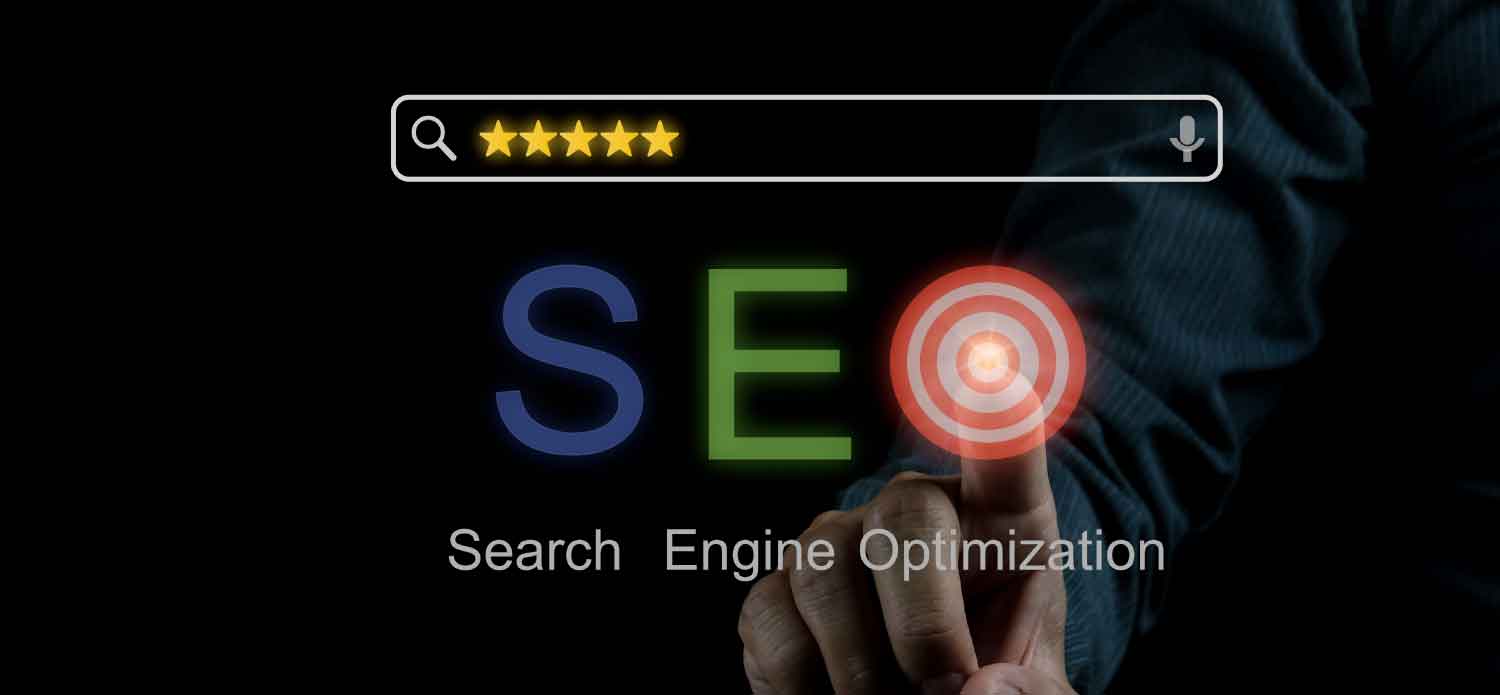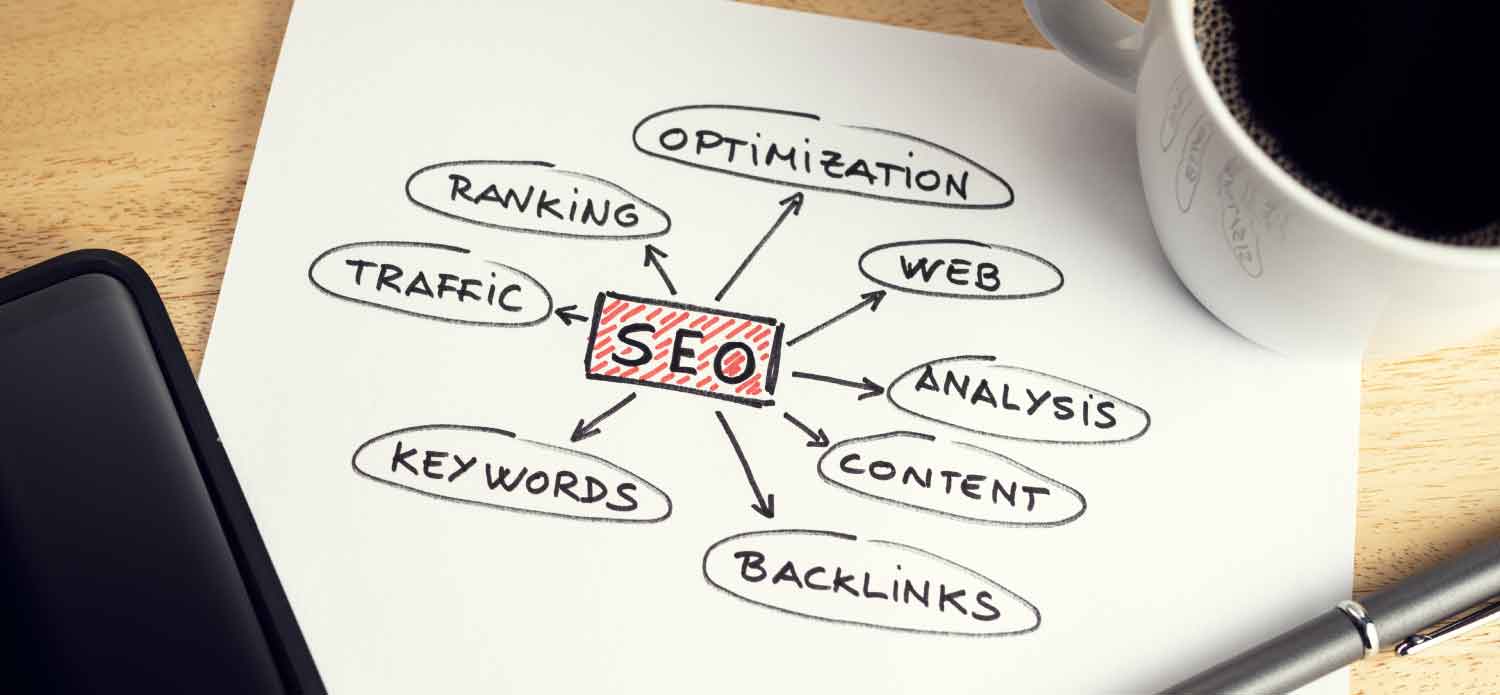


Table of Contents
SEO FAQs – 24 Answers to Common SEO Questions
Every website owner wants to appear on the first page of search engine results to get more traffic and increase revenue. This is where search engine optimization (SEO) comes into play.
SEO is not a new thing. However, while it has gained increased popularity in the digital world, many people still have many questions regarding it. Luckily, you have come to this post. Here we provide answers to the common questions people ask about SEO.
Let’s get started!

1. What is SEO?
Search engine optimization (SEO) is a digital marketing strategy that focuses on optimizing a website to make it visible in search engine results pages (SERPs) to drive more organic traffic. In other words, SEO involves optimizing a website for relevant keywords and queries to increase its visibility on search engines.
Organic traffic refers to traffic from Google’s natural listings instead of paid ads. Ideally, here’s what you need to do to increase your website’s visibility on the SERPs:
- Ensure that search engines know what your website is all about and what you offer
- Proof that you are the most credible option for your users
- Provide deliverable content
However, it is crucial to understand that Google has become very categorical on the type of results they provide to their user, making it challenging for many websites to enjoy the first-page real estate.
2. Does My Business Need SEO?
We are in the digital era, and almost every business needs SEO. After all, SEO is the most reliable and cost-effective way to reach your target audience.
If you decide to run PPC ads, you will pay for every single click you get from your PPC channel. On the other hand, SEO provides an opportunity to get organic traffic (traffic that you don’t attract a cost-per-click) aside from the investment it takes to rank on the SERPs.
Once you attain the top spot on search engines, you will get a stream of traffic without paying for any clicks. That said, here are some reasons your business needs SEO:
Organic Traffic is the Primary Source of Website Traffic
Organic search accounts for about 53% of total site traffic. Google controls a significant percentage of the search market than other search engines like Bing, Yahoo, and many others. With an excellent SEO strategy, you’ll become more visible on Google and drive more relevant traffic.
Good SEO Provides Better User Experience
The need to provide a better user experience to your visitors cannot be overstated. If you don’t know, user experience is now a ranking factor. Google has derived ways to distinguish between a good and bad user experience and will favor websites with a better user experience when providing results to search queries. Look at our detailed blog on Google’s Page Experience Update to learn more about this.
SEO Enhances Trust and Credibility
Trust and credibility are vital in the digital world. When you build a website with a better experience and publish high-quality content, your website will become an authority force on Google and other search engines. Some of the things that go into helping building authority include:
- Positive user behavior
- Optimized on-page elements and content
- Natural links
Building trust and credibility doesn’t come overnight. It requires effort, skill, and patience.
SEO is Cost-Effective
Like all good things, SEO costs money. However, SEO is not a marketing cost but rather a business investment—when done right, SEO will pay off significantly for years to come.
SEO Helps Understand the Consumer’s Voice
Better SEO involves a lot of research. It provides a way to understand market shifts as well as customer intent.
3. How Does SEO Work?
When ranking pages, search engines consider various factors, including authority, relevancy, user experience, and crawlability. To better understand how SEO works, let’s look at the below example:
Assuming you have two websites. The first website is responsive, meaning it allows users on smartphones and tablets to navigate and use the site hassle-free. The second website is not responsive, meaning users on mobile devices have difficulty navigating it.
As expected, search engines will favor the responsive website over the irresponsive one because it is more friendly. Of course, search engines consider more than 200 factors when generating search results, which means different elements will determine where your page ranks.
However, ensuring that your content is valuable and relevant will make search engines and users view your site as a trustworthy source of information in your area. After all, Google aims to provide the most relevant and credible results to its users.
4. What are the Different Types of Search Engine Optimization?
SEO is categorized into two main categories: On-page and off-page SEO.
On-Page SEO
On-page SEO is also known as on-site SEO and involves SEO strategies that happen on the website. In other words, On-page SEO involves optimizing the content on your website, including keywords, copy, headers, meta description, images, etc.
Off-Page SEO
Unlike on-page SEO, off-page SEO refer to SEO strategies that don’t happen on your website. It involves activities that help create exposure and trust for your business or brand to drive more visitors and increase sales.
Link building forms a critical part of off-page SEO. If you want to learn more about link building, check out our blog on building better backlinks.
5. What is Technical SEO?
Technical SEO refers to actions aimed at helping search engines crawl your website and improve user experience (UX). This type of SEO keeps evolving as search engines and their algorithms change.
Technical SEO addresses various elements on your website, including:
- Website speed – a fast-loading website is a good website. Recently, Google included different variables to ranking factors, including mobile-friendliness, HTTPS security, and the absence of intrusive interstitials.
- Mobile-friendliness – there are more mobile users than desktop users, meaning ensuring your website is mobile-friendly is essential. Besides, Google announced the Mobile-First Indexing, which prioritizes the URL of the mobile version of your site to determine its rankings. So, ensure that your user can easily navigate your site using mobile devices.
- Site Structure – your site structure is also important. Ensure that your URL structure is user-friendly and consistent; include consistent internal links and clear navigation.

6. What is White Hat SEO?
White hat SEO is about optimizing your website without violating search engine guidelines, including Google’s. In other words, white hat SEO refers to techniques that improve search engine rankings according to the integrity of your website and search engines guidelines.
Google may ban your site if it discovers that you’re using bad tactics to improve your ranking in search engines results pages (SERPs).
Being the most popular search engine, Google presents an excellent potential for your site to receive thousands of visitors every day. As such, being banned on its platform will give your business a serious hit.
The best way to avoid this is to implement white hat SEO techniques. Here are some white SEO tactics to follow to avoid penalties:
- Ensure your site is easy to navigate – websites that are easy to navigate have a better user experience and have a better chance to rank in search engine results pages
- Publish high-quality content – content isn’t just content. To be effective, it must be high-quality and align with your audience. Perform keyword research and use the keywords to create great content.
- Make descriptive meta tags – your meta descriptions should be descriptive to help search engines and users understand your content
7. What is Black Hat SEO?
Black hat SEO is the opposite of white hat SEO. It refers to tactics that webmasters use to improve their search rankings that violate search engines’ terms of service. In other words, these are manipulative techniques that could increase ranking on a search engine result page (SERP).
You see, some years back, people thought that SEO was a manipulative technique to ‘confuse the algorithm.’ While these tactics worked then, today, the case is entirely different. Google algorithms are now advanced and can identify spam as soon as it presents itself.
Even other search engines such as Bing are clear on what practices go against their guidelines—they have also stimulated what might happen if you violate these guidelines. Ideally, applying black hat SEO tactics can lead to manual or algorithm penalties, which leads to a decline in rankings.
That said, here are the common black hat SEO techniques you should avoid:
- Keyword stuffing
- Sneaky redirects
- Cloaking
- Guest posting networks
- Content automation
- Link schemes
- Hidden texts or links
- Article spinning
- Buying/selling links
Even if these techniques appear as though they are working, the results are short-lived. Using these techniques to rank will mean that you’ve violated Google’s Webmaster Guidelines. It will negatively impact your site’s search rankings and visibility over time and result in a poor user experience.
8. How Do I Find the Right Keywords for My Business?
Keyword research is a crucial part of SEO because it helps you discover what keywords or phrases people are using to find businesses like yours. More specifically, keywords research is essential because it:
- Helps discover keywords that people are using when searching similar websites
- Offers an excellent way to identify content gaps (which is an excellent opportunity to drive traffic to your site)
- Helps find keyword variations with the potential to boost return on investment (ROI)
Many factors come into play when doing keyword research for your business. Luckily, tools such as Google Trends and Google Keyword Planner will help in this process.
Ideally, Keyword Planner Tool will help get insights into online customer behavior. It helps discover what people are searching online and the specific keywords or terms they are using.
On the other hand, Google Trends will help discover the search interest of a particular keyword for a given period of time (search volume). You can further niche down the results to different regions and languages.
Once you get the right keywords for your business, use them to make content to increase your visibility and search engine rankings. One thing, though. Ensure that your content is engaging and relevant to your audience.
9. How Do I Improve My Website’s Authority?
Website authority is a valuable metric used to predict how likely a webpage is to appear on the SERPs over its competitors. While Google doesn’t consider Domain Authority (DA) a ranking factor, it is a valuable indicator to help web admins and website owners determine their performance against their competitors.
Several factors will determine website authority, including the total number of links. Ideally, a site with several high-quality external links is considered to have higher domain authority, while websites with fewer inbound links have a lower DA score. You can find your site’s DA score using Moz’s link explorer or keyword explorer.
The best way to enhance your DA metric is to work on your site’s SEO. In particular, you need to pay much attention to the quality of external links to your site. Ideally, getting one quality link from a website with a higher DA score like Forbes is better than several low-quality backlinks.
10. Should I Buy Backlinks?
Buying backlinks is not an uncommon tactic. You may have come across link-builders offering several backlinks for a few dollars. Please don’t fall for this trap, however tempting it may seem.
Buying cheap backlinks in bulk is a Black Hat SEO technique that can negatively impact your site. If you must pay to get a link, ensure that you have control over the type of content your link appears on or where the backlinks are placed.
Google is clearly against buying or selling backlinks. According to Google, link schemes will hurt your site’s ranking on search results. Avoid any spammy links, and you will be good to go. The best way to achieve this is to create high-quality content and focus on getting quality backlinks.
11. Why is My Site Not Ranking on Google?
There are millions of websites competing for the top spot on Google so getting the first page isn’t a small feat—you need a robust SEO strategy to rank in the top 10 spots. If you’re already invested in SEO and have confirmed that indeed your site is indexed and still your website is not ranking, here could be some reasons:
- You don’t have enough authority to compete effectively (common for new sites)
- Scrapped or duplicate content
- Your website is not mobile-friendly
- Slow sites speeds
- Not indexing your site
- Sitewide penalty for violating Google’s Webmaster Guidelines
- Ignoring social signals
- Not updating your content
- Not having a Google My Business Page

12. Is My Website Indexed in Google?
You cannot get organic traffic if Google does not index your website. There are different ways to determine whether your website has been indexed in Google.
The easiest way is to head to Google and type in “site:(yourdomain.com)” and search. If your website pops up, then your site is indexed. If not, your site isn’t indexed. To fix the issue, add your website to the Search Console and submit a sitemap.
Another way to find if your pages are indexed is by using Google Search Console. To do this, however, you must ensure that you have added and verified your website in Search Console so you can have access to reports in the Search Console.
After that, select your website in Search Console, and you’ll see a box stating ‘inspect any URL – followed by your site URL. Paste your page URL in the box and press enter to get your results. Google will let you know if the page is submitted and indexed.
13. Why Did My Organic Traffic Suddenly Drop?
Many factors can cause a sudden drop in traffic, including website changes, Google updates, drop in rankings, and changes in relevance of your content. Here are some ways to determine why your organic traffic dropped:
Did Your Rankings Drop?
When you experience a drop in organic traffic, the first thing to do is to check whether your rankings dropped. After all, if your rankings have dropped, your performance will drop as well. Some factors that could lead to a drop in rankings include:
- A website redesign or migration – redesigning or migrating a website can lead to a drop in rankings. Most often, when the new domain goes live, the domain’s visibility will likely drop due to some minor mistakes like forgetting to update the robots-txt file or removing the noindex meta robots tag.
- Changes in your website – intentional changes in your website like updating the robots-txt file, updating canonical URLs, or implementing meta robots tags can lead to a drop in rankings or decrease in traffic. Sometimes, the changes can be due to hacking of your site, which will impact your rankings and traffic. If you notice sudden drops in traffic, go to Google Search Console to check for any changes or issues.
- Lost links – links play a fundamental role in supporting your site’s SEO performance, and losing inbound links will make Google view your site as less authoritative, leading to a decline in traffic. Luckily, tools like Ahrefs can help you know the state of your inbound links.
- Your competition is doing better – you may also experience a drop in your website traffic if your competition gets better. Constantly monitor your competitors to see what they are doing better than you and take the necessary steps.
Your Rankings Did Not Drop?
You may also experience a drop in traffic without a drop in rankings. In that case, drop in traffic may be due to:
- Change in Google Algorithm – changes in search engine algorithms can result in a drop in traffic. If your traffic has dropped and there are no changes to your website, check if there’s an update you are missing.
- Change in search intent – the digital world is constantly changing, so is the user’s intent. That means what users are looking for in content today might not be what they’ll be looking for tomorrow. As such, you may still be ranking well for keywords that no longer enjoy a higher search volume. Always adjust your content to ensure it is relevant to search intent changes.
14. What are Google’s Top Ranking Factors?
Google considers many factors when determining the top results in search engine results pages. Knowing what to target when creating your SEO strategy is not an easy task.
According to Google, content, link, and RankBrain are the top ranking factors. As such, if you want to rank, you need to create link-worthy content so that Google can view it as the best result for a given search query.
However, Google’s ranking factors go beyond these three elements. Ideally, here are the top Google’s ranking factors:
- Page experience
- High-quality content
- Page speed
- Internal links
- External links
- Mobile-first
- On-page optimization
If you can navigate through these factors, you’ll drive more traffic to your website and possibly clinch that top spot on Google.
15. Why is Site Speed Important?
Site speed is crucial when it comes to website performance. Here are quick facts about site speed:
- About 40% of people will leave a site if it takes more than three seconds to load
- 47% of users expect your site to load in less than two seconds
As you can see, ensuring that your site loads quickly is essential. The goal is to ensure that people get the information they want from your site as quickly as possible; otherwise, they will leave your site for another. Not just users, Google and other search engines value speed and prioritize websites that load faster.
Imagine having great content or products on your site, but nobody can see them because your website loads slowly. Bad, right? Ideally, a website with a low site is said to have a poor user experience and will lead to a high bounce rate.
Google has clearly stated that it will reduce crawlers on your side if it loads slowly, meaning search engine crawlers might not discover your new blog and other updates on your site.
16. How Long Does SEO Take?
Anyone investing in SEO wants to know when they can start seeing results. However, it is important to remember that SEO is a long-term investment that requires time to bring results. Besides, each website is unique, and the competition it faces will also play a role.
Whether your website will rank or not will depend on how relevant and authoritative it is. This cannot happen overnight. If your website has a poor backlink architecture and isn’t authoritative, it will require a lot of time and effort to improve its rankings.
As earlier stated, search algorithms consider various factors, including the authority and the overall user experience of a website, to position it in SERPs. The more issues that need to be corrected for your website to rank, the more time is required to get the expected results.
Additionally, ranking for keywords in competitive industries will require significant time and effort. Remember, some of your competitors have ranked well for more than ten years. Over time, they have proved to provide users with what they are looking for. The only way to navigate through this journey is to partner with a reputable SEO agency to show you the way. But even then, patience is needed.
17. How Do I Measure SEO Results?
Like any other marketing tactic, it’s crucial to measure SEO results. You can achieve this by tracking organic traffic on your website and monitoring keyword position on Google.
Google Analytics will help you determine the number of times your website has appeared on search engine queries—this is how you gain organic traffic.
You can also measure your SEO results by looking at your rankings on Google. For example, assuming you want to rank for ‘top SEO agency in Los Angeles,’ check where you show up in search engine results. If you’re not ranking for the keywords you aim for (and have taken all necessary SEO measures), then you need to be more patient.

18. What is SEO-Friendly Content?
Contrary to popular opinion, SEO-friendly content is not content stuffed with keywords. SEO-optimized content is content created with users and search engines in mind. Ideally, this content resonates with users’ search intent and is easily indexed on Google. To create SEO-friendly content, you need to start with keyword research to determine what terms users are searching for and use the keywords in your content.
19. Does the Length of Content Matter in SEO?
A common question among most website owners and SEOs is how long page content should be. However, the truth is, there’s no single answer to this question—your content should be as long as necessary, provided it covers the topic at hand in its entirety.
You can get a better idea about the length of your content by looking at the top ten pages on that topic. Ideally, aim to create better content (in size and quality) than what’s readily available out there.
20. Can I Just Duplicate Content from Other Pages?
No. You should avoid duplicate content as much as possible.
Duplicate content refers to content that appears in more than one place on the internet. There are two forms of duplicate content:
- Internal duplicate content – where one domain has more duplicate content in multiple URLs on the same website
- External duplicate content – where two or more different domains contain the same content indexed by a search engine
While there’s no penalty for duplicate content, having multiple URLs with the same content can make it unclear which version should be included in search engines indices. As such, search engines will have challenges deciding which content version to rank in search query results, which means your site is likely to lose its rankings.
21. How Do I Optimize My Videos for SEO?
Optimizing your videos for SEO is the same as you would optimize your website. Here’s what to remember:
- Publish valuable videos – your videos should be informative and add immense value to your viewers. This way, search engines will value your videos too and show them in search results
- Use relevant keywords in your video content – including relevant and high-value keywords in your video title and description will help search engines understand your videos
- Encourage viewers to like and subscribe – getting viewers to like and subscribe to your content will show search engines that your content is valuable and will favor it when providing results to a search query
22. What is PPC (Pay-Per-Click)?
This is a form of digital marketing that involves paying a fee whenever your ad gets clicked. In other words, PPC is a form of marketing whereby advertisers buy visits rather than relying on SEO to get organic traffic.
23. What is a Google Penalty?
Google penalties refer to a punishment given to websites that violate Google’s Webmaster Guidelines. Your site will be said to have a Google penalty if it no longer appears on search results or rankings for your targeted keywords have suddenly dropped—you become invincible to your users, and your traffic and revenue drop.
Google penalties come in two forms:
- Manual action penalties – issued by a human reviewer from Google once it’s determined that your site has violated Google’s guidelines
- Algorithmic penalties – an automated action taken against a website by Google’s algorithm
However, algorithmic adjustments are not penalties per se but changes in a site’s ranking due to algorithm updates.
24. When Should I Hire an SEO Agency?
The best time to hire an SEO agency is as soon as now. Whether you are creating a new website or redesigning an existing one, involving experienced SEOs in the entire process will come in handy.
Don’t wait until you’ve lost significant organic traffic after migrating to a new website or redesigned your website to find an SEO company. Acting afterward will mean that you’ve already lost organic rankings, traffic, and ultimately revenue.
However, don’t fall for SEO companies that guarantee instant search engine rankings. According to Google’s Webmaster Guidelines, no SEO company can guarantee search engine rankings. These SEO companies will not produce results or violate search engine guidelines in most cases. Of course, you can achieve top rankings, but that’s not what you should hire—hire an SEO company to help drive qualified traffic.
